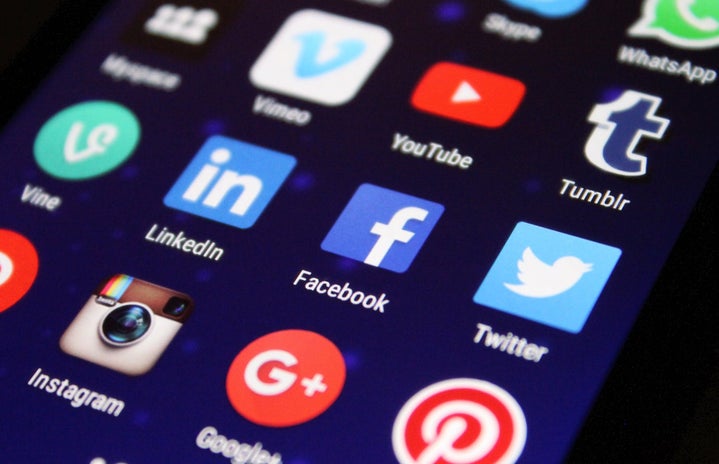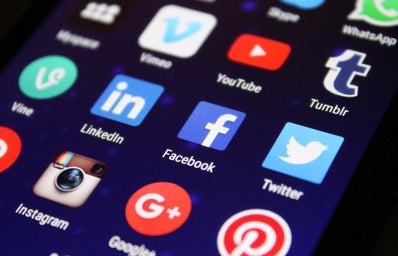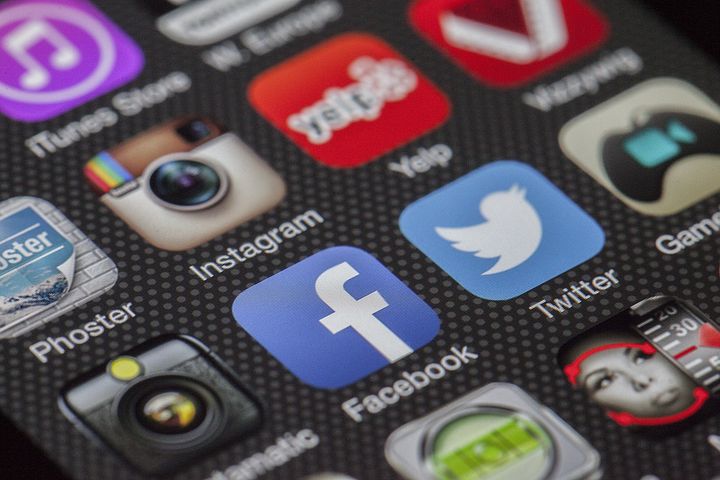Imagine living your entire life controlled by your own thoughts and compulsions. Sounds unfortunate and highly annoying, right? However, if not everybody, most people will admit to having an unhealthy fixation on something in their life, whether a person, place, or thing.
We are habitual creatures with a powerful absorbent mind, which can either be beneficial to our well-being or extremely detrimental. Despite that, I can only speak from my own experiences, but realizing that I’m not alone because social media is a generational and global obsession makes me more inclined to share how social media has altered my brain chemistry and how I plan on reversing the damage it has done.
I have spent the last two years exploring the core of my being, going beyond the obvious things I usually share about myself, like my favorite color, movie, dish, or my preferred toppings for a Chipotle bowl. As much as these topics make for a good conversation starter, those surface-level topics eventually become meaningless.
I realized this through my journey to reveal who I was within my unconscious mind, discovering how my personality was affected by the part of my brain I failed to recognize.
My initial goal throughout this journey was to identify any particular deed or endeavor that produced the neurotransmitter dopamine in my brain. In simple terms, I looked for anything that made me joyful. So, I did what any researcher or analyst would do and created a list for myself.At the same time, I went about my daily activities to give myself a visual record of what stimulated my brain chemistry regularly.
Through this form of self-evaluation, I quickly noticed that my reward system was hijacked and had been for quite some time.
Now, you may be asking yourself, how can my brain be affected by anything external from it? Trust me, I was confused, until I started evaluating my mind on a deeper level.
On this list of things that made me happy, I had a total of four things that were separate from the influence of technology.
- A steak chipotle bowl with extra guac and sour cream
- Anything green
- The sound of piano keys
- My pet turtle Ka’wayne
As I pondered on my brief and dull list of things that make me happy, I wondered why I couldn’t come up with something more substantial and beneficial to my everyday life. That is when I realized that the other half of my list included all things technology-based
- Taking pictures
- Tik Tok
- Music
This list that I made for myself brought me to an extremely important realization. It wasn’t the sun in the sky, the breath in my lungs, animals, chipotle, the color green, family, or friends that generated that dopamine boost I needed to be happy. Unfortunately, throughout the day I constantly craved one thing to feel comfortable: my phone.
I caught myself picking up my phone constantly and continuously, mindlessly scrolling, looking for the dopamine loop my algorithm never failed to give to me. I knew that my mind had been reconditioned when I noticed myself scrolling through TikTok, Instagram, or Twitter, looking for anything that would make me feel less anxious or stressed when I found myself in a bad mood.
These were unhealthy coping mechanisms that social media had programmed my brain to rely on. You may be thinking, what’s wrong with having social media as a coping mechanism if it helps? The bags under my eyes from those restless nights of scrolling would answer that question for you.
Dealing with this unhealthy fixation, I found myself in constant comparison mode, always looking for what the next person was doing with their life, feeling less than or not good enough. While social media was catering to my compulsions, it was also altering my perspective of who I was.
The fixation I had towards social media was out of control; even if I tried to put it down, my mind wouldn’t let me. Of course, I could not possibly let myself be controlled by these irresistible and mind-deteriorating programs. I did what anybody with an unhealthy fixation would do and psychologically fought back.
Once I became fully aware that I was being subconsciously affected by social media, I intentionally put myself on a phone restriction, except for phone calls, messages, and emails, this is easier said than done by the way.
I felt myself having withdrawals during this process, to the point where I would unconsciously reach for my phone out of habit, even though I intentionally put myself on restriction.
My mood fluctuated constantly, and without my habitual dopamine loop, I wasn’t sure how to regulate my emotions; day by day, the craving for social media got stronger and stronger. However, through this time and opportunity, I was able to fill that void with healthier and more beneficial activities.
Being off social media gave me so much more time to find out who I was without the influence of the outside world, I found a healthy way to stimulate the feel-good chemical in my brain.
Things such as reading, writing, walking outside, sketching, trying new foods, doing my lashes, swimming, cooking new recipes, deep cleaning, puzzles, and a variety of other activities made me happy in a way that didn’t destroy my confidence, attention span, or sleep schedule.
Throughout time, I even noticed that my Dory-like memory was improving, and my stress and anxiety were not as chronic as they had usually been.
By simply evaluating my mind and being intentional with taking back my control and power, I was able to reprogram my hijacked mind to create a healthier and more productive version of myself.



